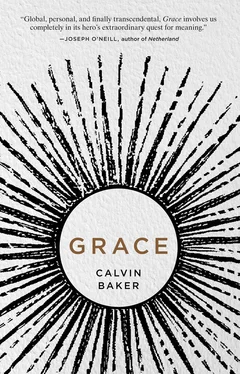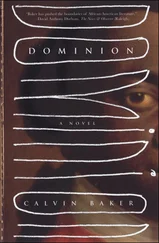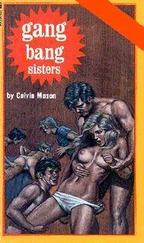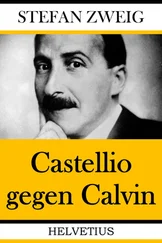“My last—”
“I’m not done,” Nell said. “But I have what I need. Listen, I know you’re not from here. I know you don’t know what you’re doing. But I do, and if you don’t stop all of this immediately you are going to find yourself in very serious trouble. Do you hear me, Anna? It’s not the kind of attention you want,” Nell finished, perfectly composed and perfectly frightening. “I see through you like a broken window. I just thought you should know that.”
“I don’t know what to say,” I said, as the recording ended. “You taped your conversation with her?”
“I cover my backside,” she said unapologetically. “I thought you did, too. Why didn’t you tell anyone?”
“I thought it would go away,” I said.
“I should have seen through her whole innocent act at the club, sorry. You know what happened to Matt.”
“You weren’t the one thinking of taking her home. Yeah, I know.”
“What did she say to you?”
“Does it matter? It’s the risk of taking someone home.”
“You know, and I’m not saying this because she’s from the South, half of people still live in the nineteenth century.”
“You let it hinder you, or you take it in stride.”
“I’m glad you can make light of it.”
“Thanks to you,” I said.
“Fifty percent of people can’t see beyond their own experience.”
“I’d say ninety.”
We let it drop, as Nell read my unarticulated thoughts, at least the ones that were uppermost. The thoughts beneath that were hidden from her. How could they not be? They were still hidden from me.
“Just find someone good and solid. There are tons of great girls. Only be careful,” she motioned with her hand to imply the city, to incriminate the Western world, “of the bad ones.”
“Well, as my Aunt Isadora would say, you do the best you can. The rest is in the hand of the Creator.”
“That is a nice thing to say. You don’t believe it, do you?”
“It is what my aunt says.”
I was sanguine when I left Nell, but as I rode the subway home I was struck by how horrifically wrong things could have gone, and not only from taking home a stranger; from any arbitrary deed committed or not committed, by yourself or anyone else. A rushed decision, haphazard luck, bad timing. The world was full of disasters-in-waiting. It made me numb to think about, until the only way I could keep from being consumed by paralysis was to grasp that paralysis was exactly the trap laid by my enemies.
Once I saw this I tried to let the entire episode flow into the past. I knew the larger pattern and meaning, but it was not the rope that would hang me. Beyond that, I tried to find in myself the smallest parcel of empathy for Anna. More than that I could not do, but that tiny parcel was enough. From no higher principle than I believed forgiveness a virtue. Not a moral one, simply the self-preserving virtue of knowing the heart that cannot expand in forgiveness — even for those who slight it, even for those who have no claim to it whatsoever — is the most devilish instrument in the world.
It had been a wretched spring and, as I boarded the flight to Brazil, I was glad to be putting it behind me for what I hoped would be a new start. By the time I changed planes in Atlanta the hot air felt restorative, and I started immediately to relax, pleased to be out of the city, as the heat made me sweat and aware of my own body. Before boarding my onward flight I checked my messages, and saw Nicola had sent me a text telling me she would be in New York that week. I wrote back to let her know I would be out of town, then downed a sleeping pill.
As I turned on my noise-canceling headphones the artificial quietude was flooded by sour memories and the crippling feeling of a vast, cosmic emptiness. I realized I had lost my orientation, would not even know how to properly describe myself other than the role required of me in a particular context. My present role was traveler on an airplane, and I could neither name any self nor feel anything solid beyond the contours of my seat pushing up from the floor of the suspended flying machine. I had no other beliefs. The feeling attacked violently, from deep within, threatening to overwhelm all my faculties, until finally I plugged my headphones into the jack and turned on the in-flight entertainment system to crowd out the emptiness.
Twenty minutes into the movie, I started to doze off from the pill, and went to the bathroom to remove my contact lenses and brush my teeth.
I do not know what happened next, but when I awoke there was an oxygen mask over my face. The steward told me I had fainted in the aisle, but that it was probably only exhaustion. I nodded lethargically, and went back to sleep.
When I awoke it was morning, and we were over the coast of Bahia. I fell back asleep and did not wake again until the wheels of the plane touched the runway in Rio. I retrieved my luggage from the carousel, bought a newspaper and café com leite , then exited the terminal to find a taxi.
I was soon stuck in the morning rush hour, overwhelmed by motion sickness from the stop-and-go traffic. I opened the windows to let in the fresh, humid, air, but was soon choked by the exhaust of whizzing motorbikes and diesel fumes from trucks. I was forced to close the window again, and curled up in the seat and closed my eyes in an attempt to keep from vomiting.
The driver, seeing me fidget, caught my eye the next time I looked ahead, and asked if I was okay. I told him the pollution was making me ill, and he suggested an alternate, if longer, route. I agreed and we pulled off the highway at the next exit. When he saw I had regained my composure, he began to re-create for me an argument he had had with his wife that morning. My Portuguese was limited to the superficial amount I could remember from a college class, combined with cognates from other Latin languages, which was perfect for his purposes, since it allowed me to follow the story only if I kept absolutely alert to what he was saying. He gleaned this, and smiled. He needed someone to hear him, so I listened as he filled the sealed interior with his woes.
We finally pulled up to the hotel, a boxy, glass-and-steelaffair from the seventies whose best days were well in the past. Its single charm was in being directly on the beach, with palm trees offering shade all around, beckoning optimistically.
When I went up to my room I found the interior as rundown as the exterior, but was pleased to discover I had a little balcony that opened to the sea. It was still early in the morning, and I opened both the double doors to let in the breeze, then lay down for a nap.
I had only just closed my eyes and started immediately to dream, when a banging at the door blasted me wide awake. From the ruckus in the hall I knew it was my friends, and opened the door to find Schoeller, Freddo, and Doc, who lifted me in a great bear hug. “There he is, in the cheapest goddamned room he could find,” Doc said, peeking around the room. “We are glad you came, but why are you so mean to yourself? You live once. Everything is available to you. Why not take it?”
“I flew right,” I said.
Doc had arrived in college after a stint in the Navy, where he was stationed in the Pacific doing intelligence. He had spent two years after that living with a tribe in Micronesia, until it was time for him to either take a wife or come back to the West and try to unify his experiences. After all of that he took school with a grain of salt, working hard enough to get into medical school, but not so hard that there was ever a Friday he did not skip classes to play golf. “Come on, let’s get this man to the beach,” he said to the others, after looking me over. “He needs a sun cure.”
Читать дальше












